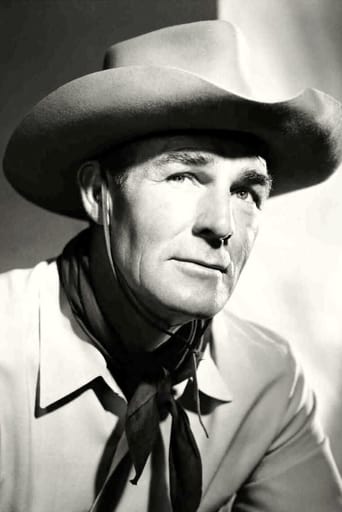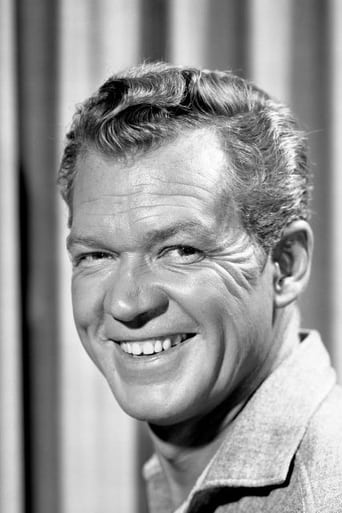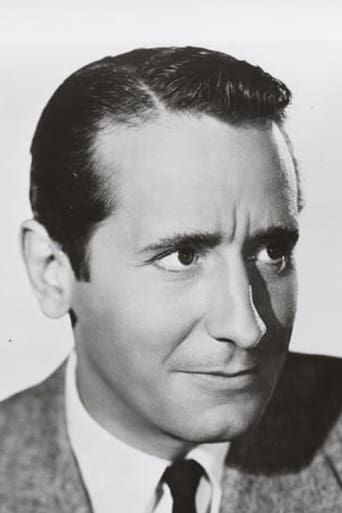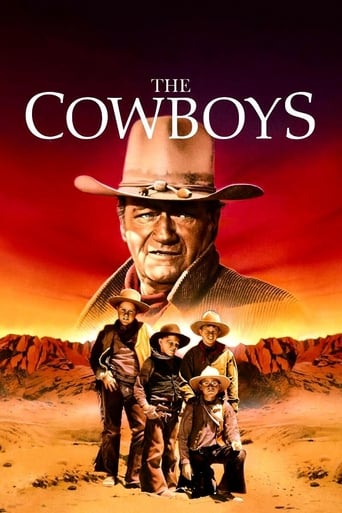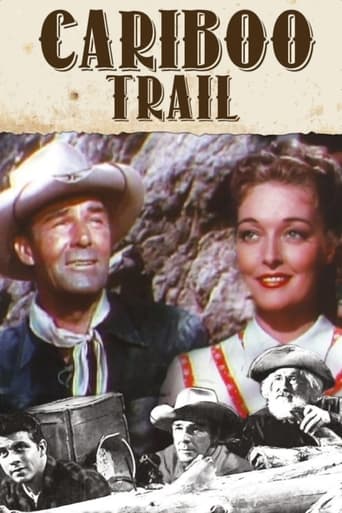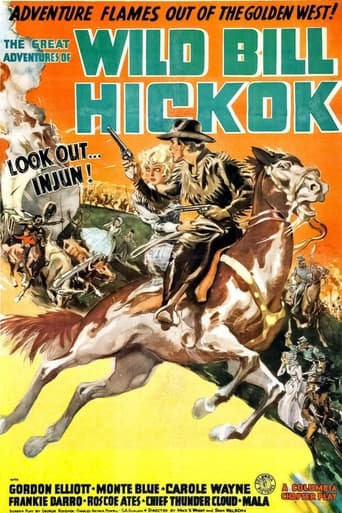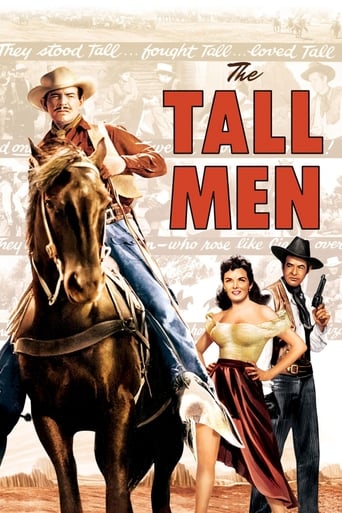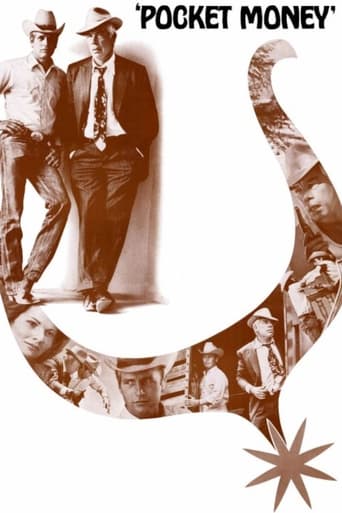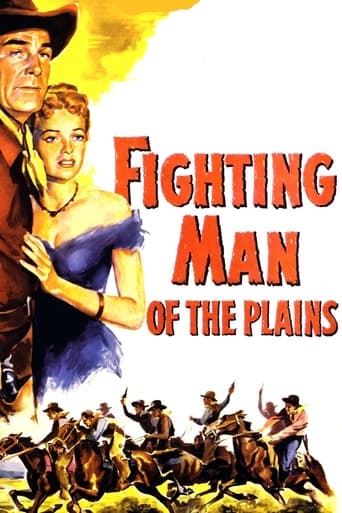
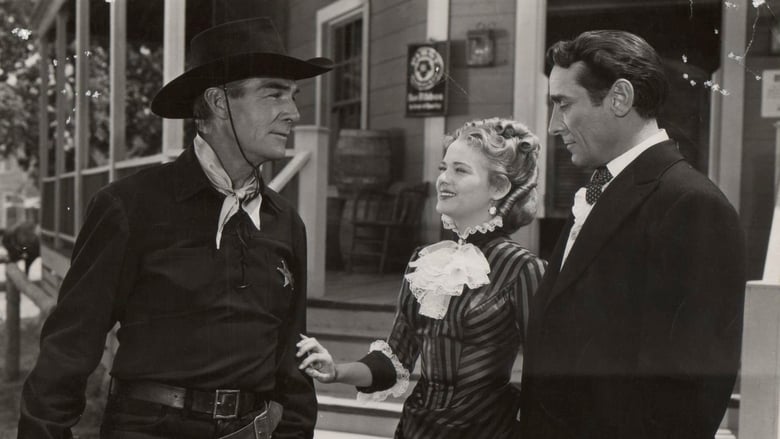
Fighting Man of the Plains (1949)
Former bandit Jim Dancer becomes marshal of a Kansas town and cleans up the criminal element - with the help of his old pal, Jesse James.
Watch Trailer
Cast
Similar titles
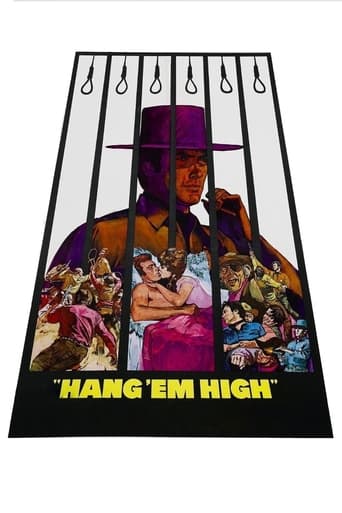
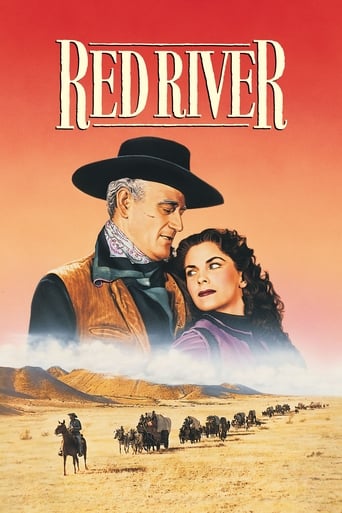
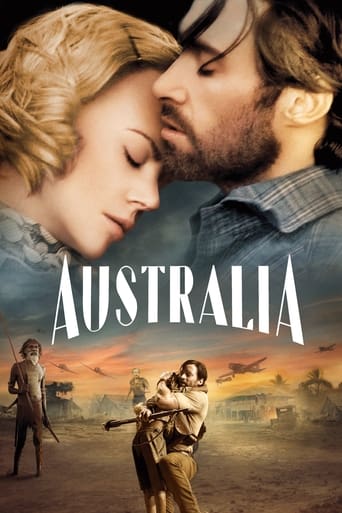
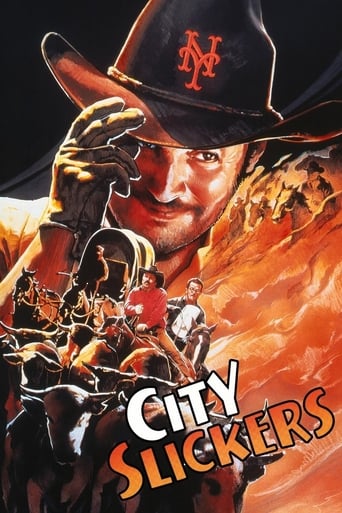
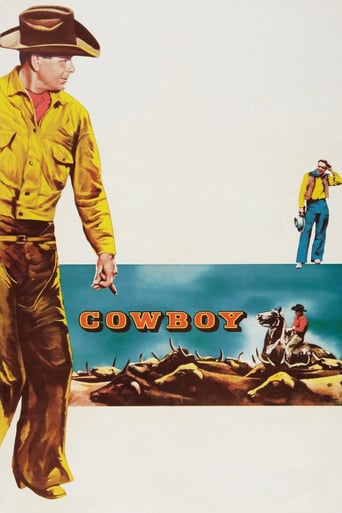
Reviews
I love this movie so much
Nice effects though.
The performances transcend the film's tropes, grounding it in characters that feel more complete than this subgenre often produces.
If the ambition is to provide two hours of instantly forgettable, popcorn-munching escapism, it succeeds.
I had high hopes for this movie, but became gradually disappointed, especially towards the implausible ending.I'm a big Westerns fan, Randolph Scott fan, and a fan of director Edward Marin, who directed one of my all-time favorite movies, John Wayne's "Tall In the Saddle." This movie started out brightly. I liked the plot device where Scott is being taken to jail by detective Milligan. The two are handcuffed together; Milligan is killed by accident, and Scott switches identities, which leads to his becoming town sheriff. There was also a welcome gritty scene where Victor Jory uses a pen knife to cut off the dead detective's hand to free Scott. Dale Robertson, in his first credited role, has two refreshing scenes.**** Spoilers**** Towards the end, the movie disintegrates much in my opinion. Barry Kelly is the political and financial boss of the town. He owns practically everything including the surrounding territory. Douglas Kennedy is town prosecutor and Kelly's loyal right-hand man. As I said, Kelly owns and controls just about everything. (It is a little puzzling the way he could legally own and control so much.) He starts to turn the screws on the townsfolk (raising the rent, insisting on a cut of the profits, fees to transport cattle, etc.). People, including Milo Meeker, begin to complain, but so what? Kelly controls everything. So why does Kelly and Kennedy arrange to have Milo Meeker killed openly in his store, especially where witnesses can see the five killers? The five are tried in court and sentenced to hang. About that time, Scott is exposed as the wanted murderer he is. Kennedy is appointed sheriff, frees the five murderers, and goes ballistic. For no real reason he starts shooting dead leading citizens. He then attempts to hang Scott for his past crimes, and Kennedy turns on Kelly and announces that he'll rob Kelly's bank. But then suddenly and for no good reason to know of Scott's plight, Dale Robertson (who is playing Jesse James) and four of his men turn up to save Scott from the hanging and to help shoot down the bad guys. Scott remains in town (as Sheriff?) even though he is still a known wanted murderer. All so implausible.
This is a real humdinger of a western. The plot and dialogue move along quickly, with no time wasted on unlikely romance or saloon song. On the contrary, this tight little gem centers fully and solely on the great Randolph Scott. Here, Scott is at his lean, trim, handsomest best; the director senses this, and the film is noteworthy for featuring a number of lovely, soft, lingering close-ups of Randolph's grim face. To me, this is a wonderful touch and a delightful tribute to one the Westerns' greatest stars.The co-stars are fine as well, but they definitely play second fiddle to Scott. One unexpected twist involves the town's "tinhorn" gambler, played by Victor Jory. Jory is the only member of the town to recognize Scott as a wanted outlaw, and is certainly in a position to blackmail him; however, in a quite unusual development, Jory chooses to befriend Scott, and remains his loyal friend to the end."Fighting Man on the Plains" is the perfect late-40's Western, a fully mature old-fashioned good-guys vs. bad-guys bit of adult theatre, a genre film crafted to its full potential; and it sets the stage nicely for the more psychologically complex Westerns of the 50's.Highly recommended for lovers of Westerns.
After a fast start, this western settles into what amounts to a plot-heavy gab fest. I'm afraid fans expecting hard-riding, fast-shooting, or scenic horizons, are going to be disappointed. Not that everything is downside. No western with the great Randy Scott can be overlooked; also, perennial bad guy Victor Jory gets to essay a good guy, for a change. And, I really like Bill Williams as a boyishly unlikely gunsel. Then add pudgy, squinty-eyed Barry Kelley as the lead black hat, and it's a fine cast.Too bad indie producer Nat Holt apparently spent everything on casting since it left him little for filming outside of studio sets. This results in a basically 'indoor' western with some action in the streets. Maybe that's the result of adapting Gruber's novel to the screen and leaving little out. So you may need a scorecard to keep up with all the characters and plot developments. One thing to notice— how county officials are really being shown as in on the graft. I love that scene where justice of the peace (Williams) gouges penalty money out of anyone who dares speak up and then splits it up with his cronies. That's certainly no western cliché. All in all, the movie's long on complex story but short on traditional outdoor visuals. Still, even here, no one looks more the western hero than the iron-jawed Scott.
I am a huge fan of Randolph Scott's westerns, so it's sad that I felt so incredibly unimpressed by this film. Most of it is because I had a strong sense of having seen all this before...which I had. If you've seen as many Scott films as I have, you'll notice that this is at least the fourth film in which his character was somehow associated with Quantrill's Raiders--a group of thugs who violated every known rule for how to conduct campaigns during the Civil War. Killing civilians and terrorism were their trademarks and it wasn't surprising that several of this Confederate raiding party went on to careers as famous western criminals. Doing one or two films related to this group is just fine--but come on Randy, enough is enough!! What also felt recycled was his 'bad man turned good' storyline--it's very familiar indeed! The film begins showing the atrocities committed by the Quantrill gang and one of it's 'nicer' members (Scott--as Jim Dancer). Following the war, Dancer was an outlaw and continued to do bad things...though not nearly as bad as the James Brothers and a few of the other Quantrill thugs. He was bad...but only a wee bit bad!! Anyway, he is captured by a private detective and is being brought back to pay for his crimes. However, on the way, the detective drowns--with Scott handcuffed to him. Now here is the dumb part--when a group of settlers pass, they find Scott and the dead guy and automatically believe Scott's story that HE is the detective and that the dead detective is Jim Dancer!! He has no proof and it sure looked suspicious to everyone EXCEPT the folks who rescued him from the handcuffs!!! Later, Scott enters a crappy lawless town and manages to have himself appointed Sheriff! At first, he seems to be only doing it for the money but oddly he later takes the job seriously and conscientiously! Can Dancer turn his life around and live his life for good? Will someone recognize him for the dirty dog that he was? Will anyone remember that he's already made several other films JUST LIKE THIS ONE? Overall, a competent but far from rousing western that is full of silly plot holes and familiar themes. It's easy to skip this one unless you are a die-hard 'Scottophile'!
